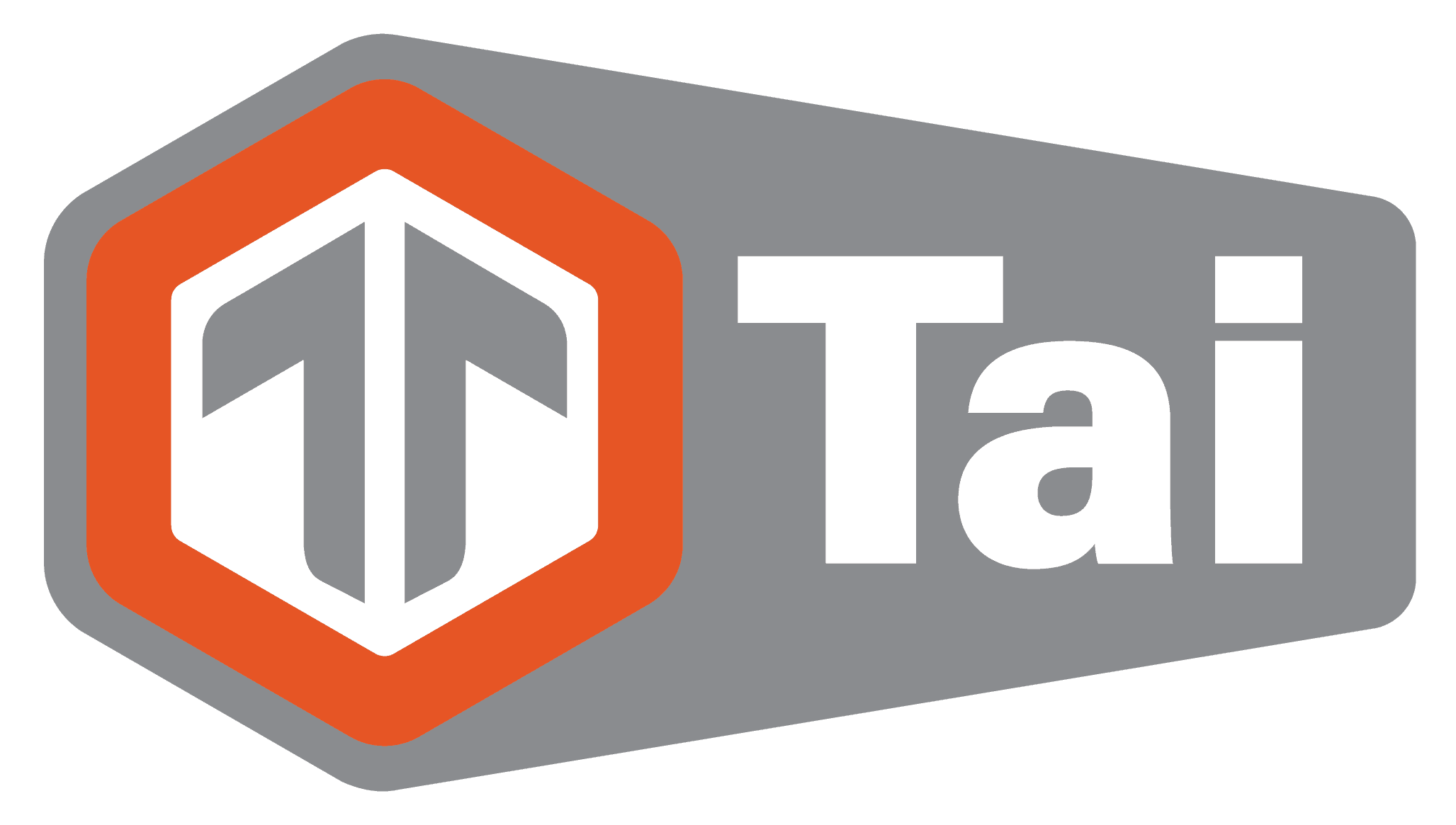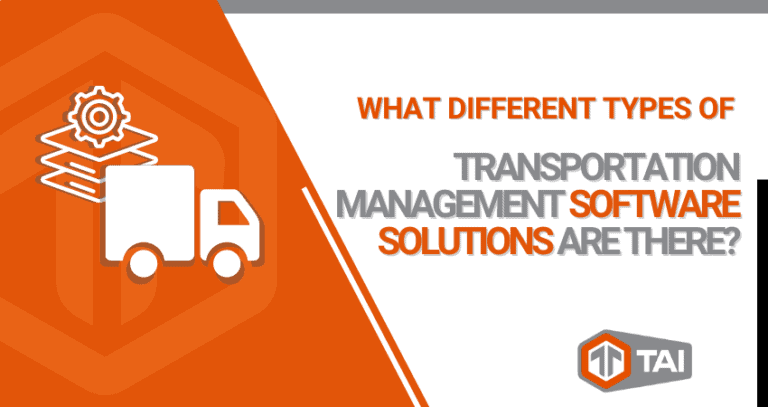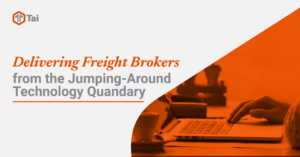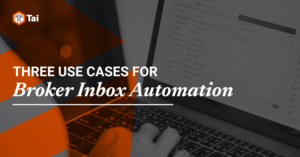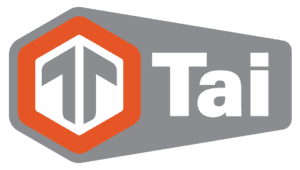Transportation management software (TMS) comes in many different shapes and sizes. These TMS systems are also designed to cater to different types of businesses and stakeholders within the logistics industry.
Freight carriers, for example, have their own TMS systems designed to help them manage and track freight. Freight brokers also need a transportation management system to match truckers with shippers or consignees who want to ship goods from one place to another.
Transportation management software solutions can be grouped into three main categories: on-premise, hosted, and cloud. On-Premise, legacy TMS systems are installed onto a company’s internal servers, while Hosted or Cloud solutions require no software installation at all.
The difference between the two is that with an on-premise solution, the customer has to host their own data, whereas, with a hosted or cloud solution, they don’t. The difference between hosted and cloud solutions is that your company’s servers are managed by an outside third-party provider when you have a hosted TMS system. In contrast, no hardware installation takes place in cloud-based systems, and all the required software is delivered as a service.
The Different Types of TMS
TMS software can be classified by the type of industries they cater to. For instance, a TMS platform specializing in freight carriers is usually designed with advanced features for managing driver compliance, routing rules, and other transportation management needs specific to this industry.
When you’re running a freight brokerage business, there are many different software systems to choose from. This article will discuss the most popular types of transport management software on the market and what makes them so popular for freight brokers like yourself. We’ll start with:
- Freight Carrier TMS Platform
- Freight Brokerage TMS Solution
- In-House Legacy TMS System
- Cloud-Based SaaS Transportation Management Software
Freight Carrier TMS Platforms
Freight carrier transport management software is designed for this specific industry and often has advanced features that cater to the unique needs of these carriers. They tend to focus on driver compliance, routing rules, and other transportation management requirements related to freight shipping companies. Some popular functions include:
- Automated Carrier Invoicing
- Safety and Compliance Programs
- Driver Rating and Feedback Systems
- Route Planning Tools
- Fleet Management Options
- Pick and Pack Management
- Dispatching Methods
- Integration Options for Additional Systems such as Supply Chain Management, GPS, Warehouse Management System WMS/WAMPS, and Mobile Apps
Freight carrier TMS systems are an excellent solution for a logistics company that wants to manage its shipping processes from beginning to end with a single system.
Freight Brokerage TMS Systems
Freight brokerage TMS systems are designed to meet the needs of freight brokers and offer features that simplify quoting, shipment management, dispatch services, document storage, billing & invoicing, plus more. Some popular functions include:
- Quoting Tools for Customers
- Invoices/Billing Systems with Support for Credit Cards, PayPal, and Wire Transfers
- WebForms for Customers to Fulfill Their Own Needs
- Integration with Shipping Systems like UPS or FedEx as well as load boards like DAT or Truckstop.com to make it easy for brokers to complete their transactions
- Automated Shipment Processing through WebForms, allowing freight brokers to automate their customer’s shipment processing needs. This ensures that all shipments are tracked from beginning to end and can provide a more efficient process than other methods such as phone or fax order entry
Freight brokers have a lot of tasks on their plate in addition to running the business side. Freight brokerage TMS systems offer features that simplify quoting, shipment management, and dispatch services.
All of these features are designed to make your job easier and more efficient, so you can focus on growing the business.
LTL Freight Broker TMS
LTL freight broker TMS systems are designed for the transportation management needs of companies that ship less-than-truckload shipments. These solutions offer features such as:
- Automated Broker Invoicing with Email and PDF Delivery Options
- Multiple Customer Billing Methods (including credit card, PayPal, wire transfer)
- Integration with Shipping Systems like UPS or FedEx
- Broker Quotes and Shipments Tracking from Beginning to End
These features make LTL freight broker TMS software an excellent option for companies that ship less than truckload shipments. It provides all the tools you need in one system without any of the hassles.
If the freight broker deals with international shipments and with different modes of transportation, a freight TMS system with global capabilities may be the best fit. A global transportation management software solution is designed to help you meet your company’s needs while maximizing efficiency and minimizing costs.
FTL Freight Broker TMS
FTL freight broker TMS systems are designed for the transportation management needs of companies that ship full truckloads. These solutions offer similar features as those systems geared towards LTL but with a few notable exceptions such as:
- Vehicle Tracking and Driver Management Tools
- Route Planning Tools for Calculating Fuel Needs, Mileage, etc.
- Broker Quotes & Shipments Tracking from Beginning to End with All the Important Information at Your Fingertips: Cargo Weight, Volume Capacity of Vehicle, Number in Load Crews, etc.
- Fully Integrated with UPS or FedEx for One-Click Tracking as well as LoadBoard to help broker complete their transactions
FTL freight brokerage TMS systems offer features that make your shipment process from beginning to end easier and more efficient, such as vehicle tracking and driver management tools, route planning tools for calculating fuel needs.
In-House Legacy TMS Systems
In-house legacy TMS systems require the most investment upfront as they often need custom programming to integrate with other business and logistics software. These platforms are also dependent on a physical server that needs to be maintained and upgraded regularly, which is costly. They’re typically installed by an in-house IT professional who can install, configure it for use, and maintain it in synchrony with your business needs.
However, they also offer the most customization when it comes to specific process integration for freight brokers, as well as real-time data updates so you can make changes on the fly without having to wait until the end of the day or processing time is over. This type of system typically requires a significant upfront investment and ongoing monthly fees for maintenance, so it may not be the best option for smaller freight brokers.
In-house legacy TMS systems are a viable solution if you have plenty of expertise in-house to maintain, update, and configure them over time as they’re often reliant on custom programming, which is costly both upfront and from an ongoing fees perspective.
Cloud-Based SaaS Transportation Management Software
Cloud-based TMS software is the most cost-efficient out of all three options as they require very little to no upfront investment, minimal ongoing fees, and are highly scalable, making them ideal for smaller freight brokers.
However, these types of systems may not be updated in real-time, so you won’t get data updated on individual shipments as you would with in-house legacy TMS systems.
Cloud-based SaaS transportation management software is the most cost-efficient option for freight brokers on a budget but may not offer data updates crucial to some freight broker processes.
Nevertheless, depending on how professional or well-established the logistics software TMS vendor is, cloud-based TMS systems can be the best investment in scale and affordability.
Cloud-based TMS solutions leverage cloud computing technologies to make the entire platform accessible anywhere, including from any device. This means both the freight broker’s data and the platform itself are hosted in a remote network of servers that provide storage and computing power remotely over a broadband connection. As a result, the risk of data loss will decrease in comparison to cloud-based TMS systems that store data locally.
Cloud-based TMS solutions also usually come equipped with API and EDI integration modules for easy connections with industry load boards, tracking tools, booking, invoicing, and various carrier software for faster processing and increased freight and overall supply chain visibility.
Conclusion
Transportation Management Systems have been around for decades, and they are now a crucial part of the logistics industry. There are many different types available, each with its benefits and drawbacks. The type of system you ultimately choose will depend on your specific needs and the level of sophistication to which those needs require.
Specifically designed for freight brokers and other 3PLs, Tai Software is a cloud-based TMS with a high degree of flexibility and scalability, allowing you to set up your own TMS system customized for your specific needs. The tool can automate all of the processes involved in moving freight – from tracking and tracing to routing, planning, monitoring, and invoicing.
Tai Software is a third-party TMS that will work with any ERP system you are already using. It integrates seamlessly into your existing processes without the need for expensive outsourcing or technical know-how on your end.
Tai Software also has mobile apps for Android devices that provide you with up-to-date information wherever you are. This way, you can keep tabs on your entire shipment process from start to finish – no matter where the work is happening or how many people are involved.
With our freight broker TMS, your operations will be streamlined and more efficient than ever before, so you can spend less time managing all the logistics of your business and more time on what’s really important – customer satisfaction!
Contact us today for a demo and to learn more.
